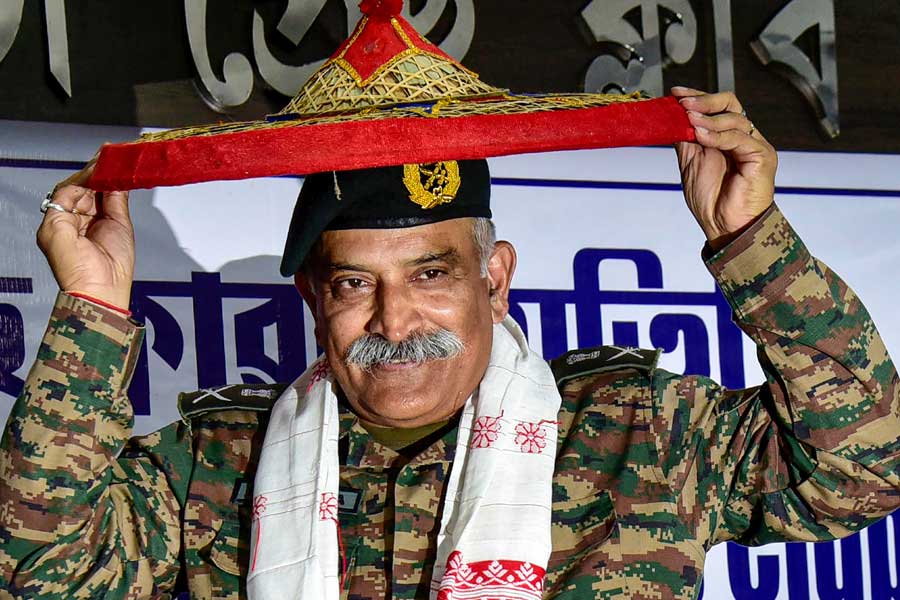The eastern army commander, lieutenant-general Rana Pratap Kalita, has warned that the political instability in Myanmar is affecting the security of Manipur, which has seen violent inter-ethnic clashes since May. Mr Kalita cited the presence of a large number of looted weapons in the northeastern state as another factor responsible for the continuation of violence in Manipur. These comments from a senior military commander serve as a reminder of the volatility of the security landscape in Manipur. But they should also make New Delhi reflect on its policy towards Myanmar, especially since the neighbouring nation’s military carried out a coup against a democratically-elected government in February 2021. The Indian government has remained engaged with Myanmar’s military junta led by the general, Min Aung Hlaing, for the last 34 months even as it has nudged its neighbour to return to democracy. In May, the United Nations said India had supplied arms and related supplies worth $51 million to Myanmar since the coup. From ministers to top diplomats and security officials, India has also sent a series of high-profile officials to Myanmar even as evidence is mounting that the military rulers lack popular support in large parts of the country.
Proponents of India’s approach argue that weakened ties between New Delhi and Myanmar will push its neighbour further into the arms of China and that New Delhi needs to work closely with Myanmar’s rulers for its border security as well as for transit projects to Southeast Asia. Yet Mr Kalita’s warning shows that the Myanmar junta ensuring border security for India is a bit of a myth. Indeed, Myanmar, which has grappled with internal rebellions in parts of the country for decades, is today in far greater political and security chaos than before the coup. Activists associated with the ousted National Unity Government of the jailed Nobel laureate, Aung San Suu Kyi, have launched a series of attacks on army posts and other rebel groups have teamed up to take back towns and large parts of several provinces from the military. If an unelected and unpopular junta cannot deliver on India’s interests, it is time for New Delhi to rethink its strategy towards Myanmar. The fear of China must not paralyse India into forgetting a far more worrying prospect — pro-democracy forces in Myanmar that should view New Delhi as an ally treat it as an extension of the junta.










